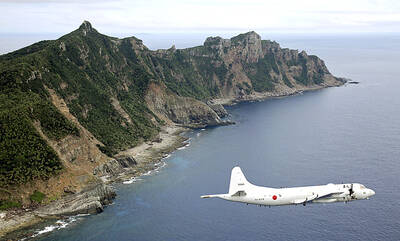US retailing giant Target Corp announced a voluntary recall of Chinese-made toy gardening tools and children's lawn furniture containing "excessive levels of lead," the company said in a statement on Wednesday.
The recall affects some 350,000 toys bearing the "Happy Giddy Gardening Tools" and "Sunny Patch Children's Chairs" logos, the Minneapolis, Minnesota-based retailer said, in the latest of a spate of recalls that have sullied the "Made-in-China" brand in the US.
Meanwhile, the RC2 Corp on Wednesday announced that it too would voluntarily recall five "Thomas and Friends" wooden toy train items made in China, due to lead paint levels that exceed US Consumer Product Safety Commission standards.
The new recalls, RC2 said, affect up to 200,000 toy units distributed domestically and some 69,000 units sold outside the US.
China reacted yesterday to the Target recall by saying it took all problems seriously.
"The Chinese government retains a consistent attitude towards any new recalls or new product quality problems," commerce ministry spokesman Wang Xinpei (
"We will take every effort to resolve the problems seriously and responsibly according to the facts, even if there has only been one problem in a thousand products," he said.
The US banned the use of lead paint on toys in 1978 on health grounds and earlier this month US lawmakers questioned industry executives over what was being done to stop dangerous Chinese-made toys being imported.
The US toy industry is vying to ward off a mounting political storm and increasing public fear about the safety of Chinese-made products following a series of mass recalls in recent months.
China produces most of the world's toys and operates around 20,000 toy-making plants, according to some estimates.
Concern over Chinese toy exports -- some with lead paint, some with other safety defects -- have led to the recalls now numbering in millions of items and affect some of the US' more popular brands, including Barbie dolls, and some of its marquee companies and retailers like Mattel, Fisher Price, and Toys "R" Us.

MISINFORMATION: The generated content tends to adopt China’s official stance, such as ‘Taiwan is currently governed by the Chinese central government,’ the NSB said Five China-developed artificial intelligence (AI) language models exhibit cybersecurity risks and content biases, an inspection conducted by the National Security Bureau (NSB) showed. The five AI tools are: DeepSeek, Doubao (豆包), Yiyan (文心一言), Tongyi (通義千問) and Yuanbao (騰訊元寶), the bureau said, advising people to remain vigilant to protect personal data privacy and corporate business secrets. The NSB said it, in accordance with the National Intelligence Services Act (國家情報工作法), has reviewed international cybersecurity reports and intelligence, and coordinated with the Ministry of Justice Investigation Bureau and the National Police Agency’s Criminal Investigation Bureau to conduct an inspection of China-made AI language

BOOST IN CONFIDENCE: The sale sends a clear message of support for Taiwan and dispels rumors that US President Donald Trump ‘sold out’ the nation, an expert said The US government on Thursday announced a possible sale to Taiwan of fighter jet parts, which was estimated to cost about US$330 million, in a move that an expert said “sends a clear message of support for Taiwan” amid fears that Washington might be wavering in its attitude toward Taipei. It was the first announcement of an arms sale to Taiwan since US President Donald Trump returned to the White House earlier this year. The proposed package includes non-standard components, spare and repair parts, consumables and accessories, as well repair and return support for the F-16, C-130 and Indigenous Defense Fighter aircraft,

CHECKING BOUNDARIES: China wants to disrupt solidarity among democracies and test their red lines, but it is instead pushing nations to become more united, an expert said The US Department of State on Friday expressed deep concern over a Chinese public security agency’s investigation into Legislator Puma Shen (沈伯洋) for “secession.” “China’s actions threaten free speech and erode norms that have underpinned the cross-strait ‘status quo’ for decades,” a US Department of State spokesperson said. The Chongqing Municipal Public Security Bureau late last month listed Shen as “wanted” and launched an investigation into alleged “secession-related” criminal activities, including his founding of the Kuma Academy, a civil defense organization that prepares people for an invasion by China. The spokesperson said that the US was “deeply concerned” about the bureau investigating Shen

DISPUTE: A Chinese official prompted a formal protest from Tokyo by saying that ‘the dirty head that sticks itself out must be cut off,’ after Takaichi’s Taiwan remarks Four armed China Coast Guard vessels yesterday morning sailed through disputed waters controlled by Japan, amid a diplomatic spat following Japanese Prime Minister Sanae Takaichi’s comments on Taiwan. The four ships sailed around the Senkaku Islands — known as the Diaoyutai Islands (釣魚台) to Taiwan, and which Taiwan and China also claim — on Saturday before entering Japanese waters yesterday and left, the Japan Coast Guard said. The China Coast Guard said in a statement that it carried out a “rights enforcement patrol” through the waters and that it was a lawful operation. As of the end of last month,